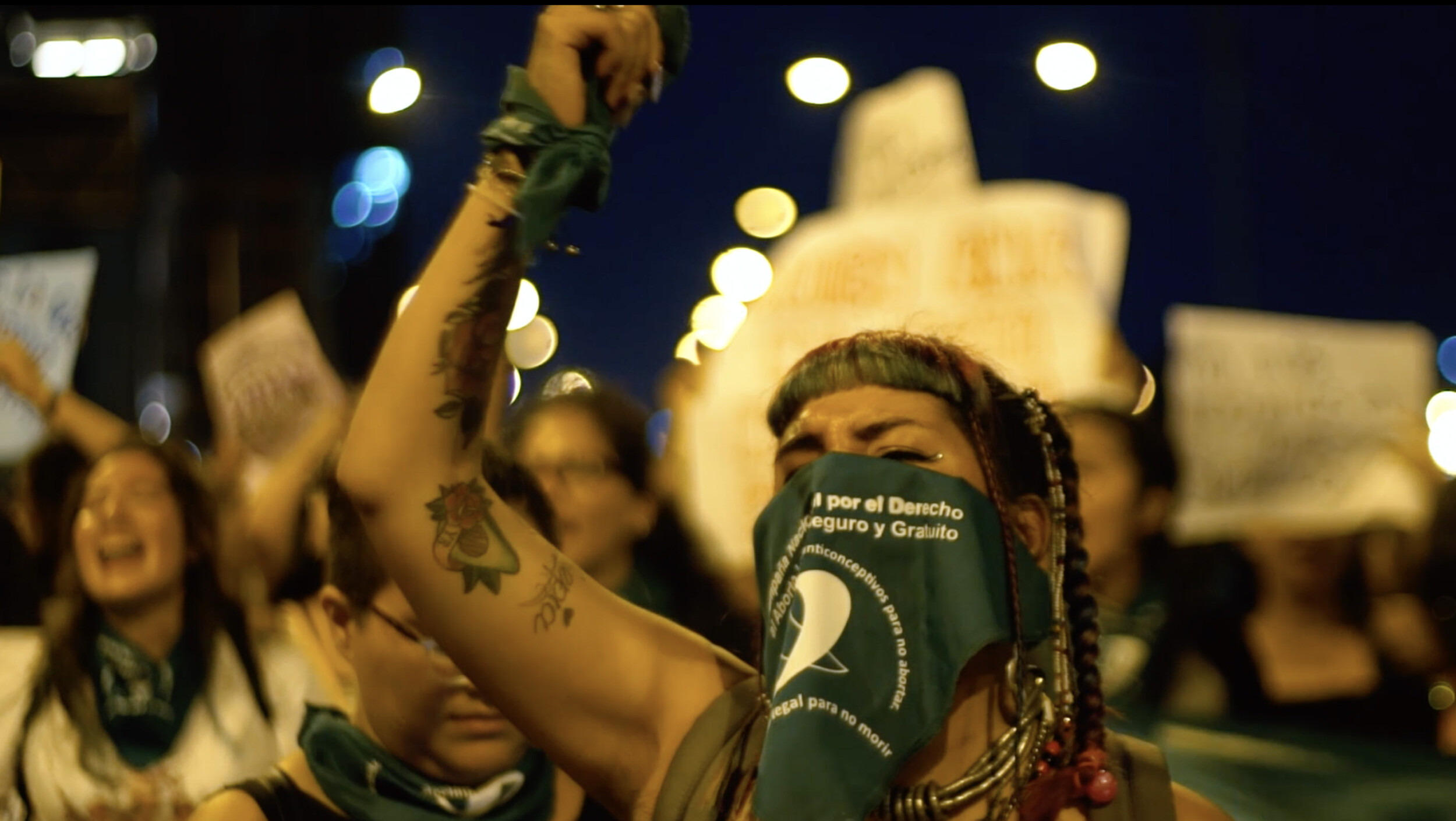Can you believe it’s been 30 years since the Beijing Declaration and Platform for Action? It’s a perfect time to reflect on how far we’ve come in the fight for gender equality and women’s rights and recognize the work still ahead of us.
Blueprint
In 1995, Mama Cash supported 19 feminists from the Global South and at least 15 Black and migrant feminists from the Netherlands to attend the Fourth World Conference on Women in Beijing, China. The discussions there shaped the Beijing Platform for Action – the most comprehensive global policy framework on gender equality and women’s rights. Thirty years later, it serves as a blueprint for the commitments needed to advance gender equality and the human rights of women and girls worldwide. Since then, feminist movements around the world have made significant progress – sometimes holding their ground, sometimes losing it, but often reclaiming it.
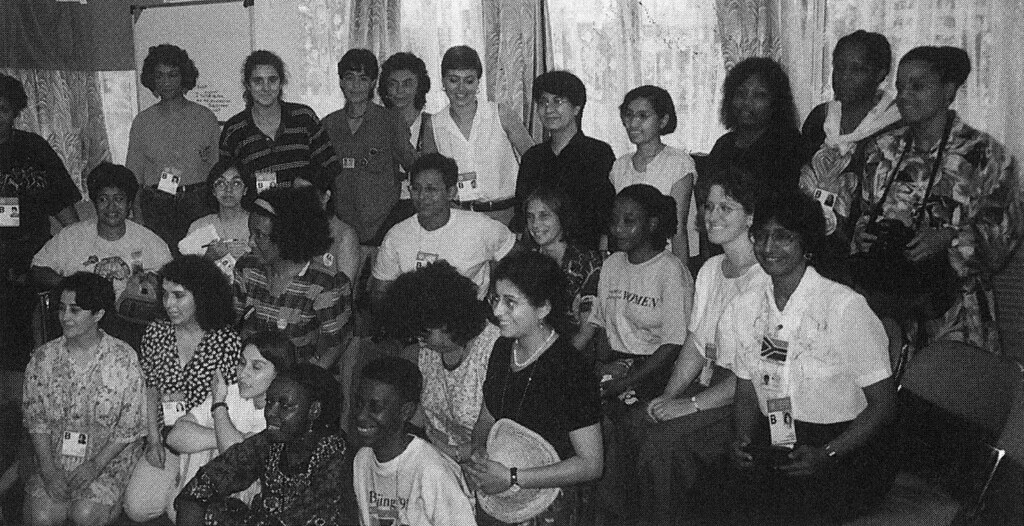
In countries with strong feminist movements, women are paid more fairly, have better rights to land and inheritance, and greater access to financial institutions. These movements have ensured we have stronger legal protections for domestic workers and better laws against sexual harassment.
They’ve also secured more effective laws against gender-based violence, support systems for survivors, and greater representation of women in leadership and all levels of policymaking
Shrinking civil space
Today, far-right governments are on the rise and threats to democracy and human rights are increasing. Feminist movements are facing serious challenges: from shrinking civil space to attacks on bodily autonomy and sexual and reproductive health and rights. Funding for women’s rights organisations is shrinking, and the OECD reports a drop in global support for gender equality. In 2025, many progressive philanthropic foundations are also stopping or reducing funding for gender equality. In a recent op-ed in the Chronicle of Philanthropy, Kellea Miller from the Human Rights Funders Network recently warned that cuts to US, Dutch, and Swedish foreign aid alone could slash nearly $78 billion a year – over a third of all global foreign aid – with serious implications for programmes and funding on gender equality.
Fighting for progress
Despite setbacks, feminists have continued to push forward. Mama Cash’s grantee-partners have been right at the centre of these changes, fighting for progress and directly influencing policy, often at great personal risk. Let’s look at a few examples of how they’ve driven policy change over the past 30 years.
Reproductive justice: legalised abortion in the Americas
In 2020, Argentina made history by legalising abortion, thanks to a powerful movement that grew from 70 organisations in 2005 to 755 by 2020. Their symbol became the green bandana, introduced by Católicas por el Derecho a Decidir (Catholics for a Free Choice-Latin America), who received their first grant from Mama Cash in 1997. The green bandana was picked up by feminist, LBTQI, student, labour, and professional groups, who joined forces and became the Marea Verde (Green Wave).
They led protests, created art, ran media campaigns, and advocated for new laws. Through this, they built networks of journalists, lawyers, healthcare providers, and policy experts, which shifted public opinion and in turn pressured lawmakers. Their work led to more than a legal win; they brought about a cultural shift that inspired Mexico and Colombia to follow suit.
Together, they achieved what they call the “social decriminalisation” of abortion
Economic justice: legal protection for domestic workers
Around the world, one in 12 working women is a domestic worker, and nearly one in five domestic workers is an international migrant. For too long, their work has been undervalued and unprotected. That began to change with the adoption of the International Labour Organization (ILO) Conventions 189 and 190.
In 2011, Mama Cash grantee-partners such as the National Union of Domestic Employees and other domestic worker organisations, helped negotiate these landmark agreements. Convention 189 secured domestic worker’s rights to fair wages and dignified working conditions, and Convention 190 addressed workplace violence and harassment. To date, 36 and 39 countries respectively have ratified these conventions.
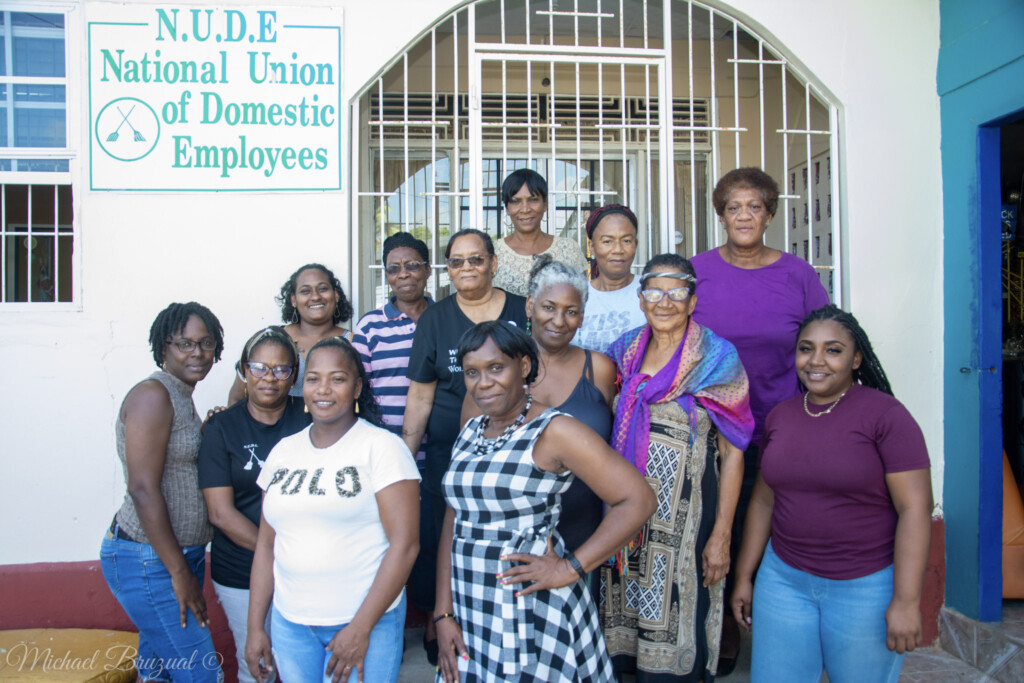
With nearly €3.6 million in grants, Mama Cash has supported domestic workers’ organising nationally and regionally in at least 30 countries. These ILO victories sparked further activism: since 2010, Mama Cash’s grantee-partners have secured legal protections for half of the world’s 75 million domestic workers, granting them rights such as a minimum wage, sick leave, and overtime pay.
Fighting for climate justice in Fiji
DIVA for Equality in Fiji is leading the charge for those most affected by climate change. The Pacific region faces cyclones, floods, droughts, and ecosystem destruction, leaving many without basic resources like housing, food, water, and sanitation. Supported by Mama Cash through five grants since 2016, DIVA has set up feminist mutual aid networks, distributed gender-just aid, supported survivors of sexual and gender-based violence, and organised over 150 clean-up campaigns and rallies. They’re also educating and advocating for systemic changes that help women, girls, and LBTQI+ people.
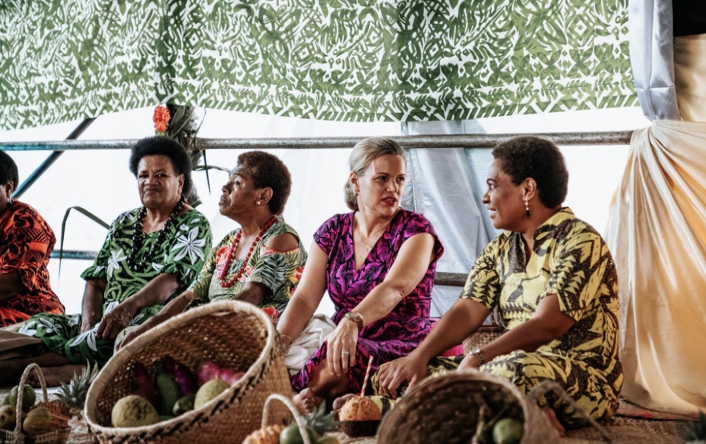
In 2023, DIVA helped secure the Loss and Damage Fund at COP27 – a crucial victory for the Pacific and other climate frontline states. Through campaigns like #COP27Pacific and ‘Pacific Feminists Defending the Living Planet’, DIVA continues to fight for fair climate funding, ensuring those most impacted by climate change receive the support they need. With deep networks across Fiji, the Pacific, and globally, DIVA has nurtured groups of activists that now organise independently.
Countering gender-based violence: the Istanbul Convention
Since the 1990s, Mama Cash has supported Mor Çatı (Purple Roof) in Turkey. One of this movement’s biggest victories came through a lawsuit, where they submitted a key contextual brief that the European Court of Human Rights cited in its Opuz vs Turkey ruling. The court ruled – for the first time – that domestic violence is a form of discrimination and that governments are responsible for eradicating it.
This ruling paved the way for the 2011 Istanbul Convention on preventing and combating domestic and gender-based violence. Turkey was the first country to sign and ratify the Convention, and the government worked with feminist, LBQ, and trans organisations, such as Mor Çatı and Pembe Hayat, to align national domestic violence law with the Convention’s principles. The resulting law introduced both preventative actions against perpetrators and protective measures for survivors.
Since then, waves of political backlash and regression have swept across Turkey under the current government. And in 2021, Turkey became the first country to withdraw from the Istanbul Convention. Despite this setback, the government is still bound by the ECHR’s ruling and must implement the law. Public outcry over Turkey’s withdrawal has significantly raised awareness – as Mor Çatı’s Hale Çelebi noted: “Almost all people in Turkey know the Istanbul Convention now.” With repression and femicide numbers on the rise, feminist groups are still on the frontlines, fighting for justice.
Legalising same-sex marriage in the Netherlands
Supporting LBQ rights and communities has been central to Mama Cash’s purpose from the start – even when this issue was overlooked by other international funders. Mama Cash played a key role in supporting the now visible and vibrant LBQ movement in the Netherlands, supporting Dutch LBQ groups with 110 grants between 1983 and 2001. In 1998, the movement helped secure the right for same-sex couples to register their partnerships, and in 2001, the Netherlands became the first ever country to legalise same-sex marriage. Marriage equality was the work of thousands of activists, and in that mix were Mama Cash’s radical, determined, and vocal grantee-partners, staff and founders.
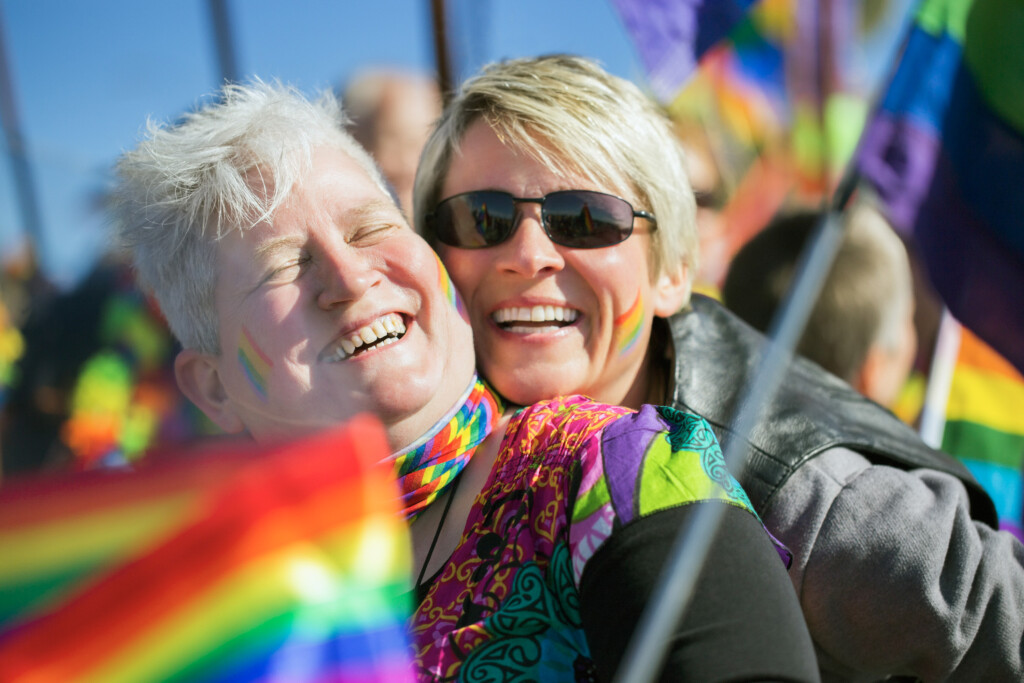
Women are leading the way
We’ve come a long way since 1995: thanks to the relentless work of feminist activists, the lives of many women, girls, and trans and intersex people are very different from 30 years ago. But while we celebrate these wins on the anniversary of the Beijing Conference, we’re also facing a troubling backlash against civil society, and women’s rights and gender equality in particular. There’s so much at stake: not just advancing rights, but defending hard-won rights now under threat. A strong civil society is essential to a functioning democracy, yet it’s under increasing pressure.
With the world at a boiling point, we can’t afford to wait decades for gender equality – the time to act is now
Our grantee-partners are leading the fight for a feminist future and driving real change. Over the last 30 years, their expertise and strategies have improved the lives of millions of women and girls around the world. Their movements are already working – they don’t need to start from scratch. With the right resources, they can grow stronger, move faster, and on a greater scale, and push back against the rising threats to gender equality.
Mama Cash is committed to ensuring they have the funding they need to drive lasting change. Join us in supporting those that are building a world where everyone can thrive. They’re already doing it.

